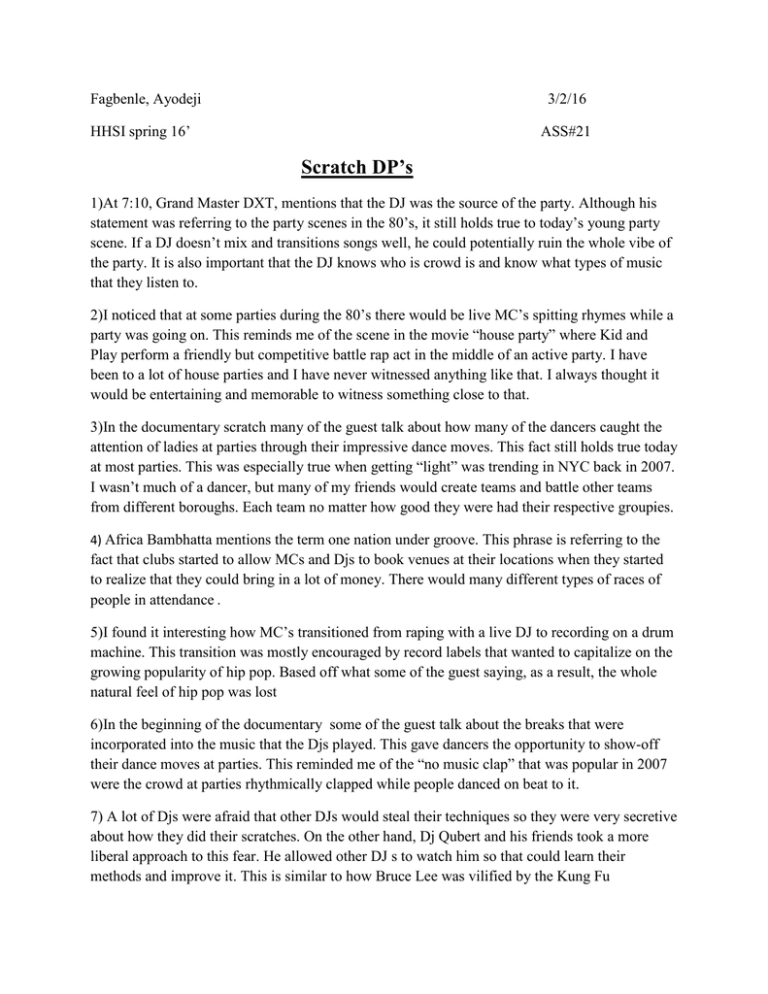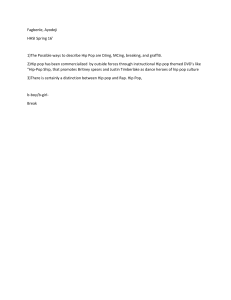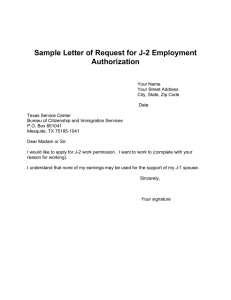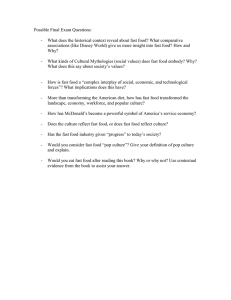scratch dps.docx
advertisement

Fagbenle, Ayodeji 3/2/16 HHSI spring 16’ ASS#21 Scratch DP’s 1)At 7:10, Grand Master DXT, mentions that the DJ was the source of the party. Although his statement was referring to the party scenes in the 80’s, it still holds true to today’s young party scene. If a DJ doesn’t mix and transitions songs well, he could potentially ruin the whole vibe of the party. It is also important that the DJ knows who is crowd is and know what types of music that they listen to. 2)I noticed that at some parties during the 80’s there would be live MC’s spitting rhymes while a party was going on. This reminds me of the scene in the movie “house party” where Kid and Play perform a friendly but competitive battle rap act in the middle of an active party. I have been to a lot of house parties and I have never witnessed anything like that. I always thought it would be entertaining and memorable to witness something close to that. 3)In the documentary scratch many of the guest talk about how many of the dancers caught the attention of ladies at parties through their impressive dance moves. This fact still holds true today at most parties. This was especially true when getting “light” was trending in NYC back in 2007. I wasn’t much of a dancer, but many of my friends would create teams and battle other teams from different boroughs. Each team no matter how good they were had their respective groupies. 4) Africa Bambhatta mentions the term one nation under groove. This phrase is referring to the fact that clubs started to allow MCs and Djs to book venues at their locations when they started to realize that they could bring in a lot of money. There would many different types of races of people in attendance . 5)I found it interesting how MC’s transitioned from raping with a live DJ to recording on a drum machine. This transition was mostly encouraged by record labels that wanted to capitalize on the growing popularity of hip pop. Based off what some of the guest saying, as a result, the whole natural feel of hip pop was lost 6)In the beginning of the documentary some of the guest talk about the breaks that were incorporated into the music that the Djs played. This gave dancers the opportunity to show-off their dance moves at parties. This reminded me of the “no music clap” that was popular in 2007 were the crowd at parties rhythmically clapped while people danced on beat to it. 7) A lot of Djs were afraid that other DJs would steal their techniques so they were very secretive about how they did their scratches. On the other hand, Dj Qubert and his friends took a more liberal approach to this fear. He allowed other DJ s to watch him so that could learn their methods and improve it. This is similar to how Bruce Lee was vilified by the Kung Fu community when he brought it to America. Many thought the teachings of Kung Fu should be kept secret. Bruce Lee thought differently 8) I like how DJ Babu called turn tables a musical instruments. I agree with that is could be considered a musical instrument, because you’re dealing with notes and timing. On the other hand, I can imagine how conservatives of music would consider that a lie. 9)At 39:00, the guest talk about DMC, which is an acronym for the disc mix club. Their first thing I thought about was Run DMC. What I found most interesting that it wasn’t just mixes of hip pop beats, but it was other types of music like country 10) At 1:10, the movie scratch shows current young suburban white kids who are influenced by the whole DJ and MC lifestyle. The main source of Hip Pop is poverty and strife, so I was a little surprised to see how engrossed they were into the lifestyle. This just goes to show that hip pop has the unique ability of crossing over color and social economic lines unlike a lot of music genres out here today.


